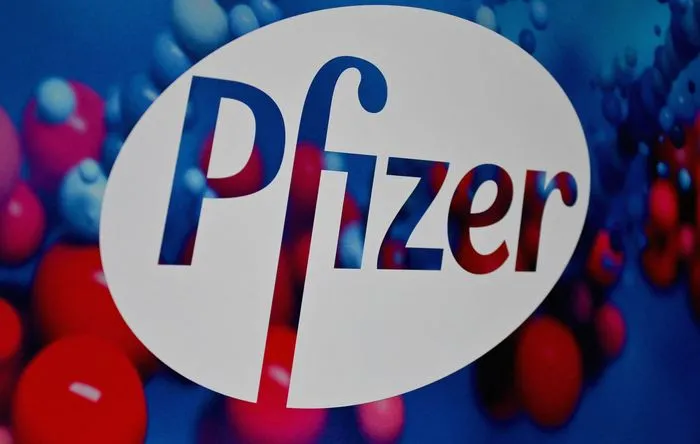News
Pfizer Takes Big Loss From Reduced Use of Their ‘COVID-19 Vaccines and Therapies’
Moreover, Pfizer may face lawsuits from individuals claiming injuries from vaccines.

In light of recent financial results, Pfizer, one of the key producers of the COVID-19 vaccine, is undergoing substantial changes in its revenue and earnings outlook for 2023. The pharmaceutical titan recently announced a revised projected earnings per share (EPS) for FY23, cutting its previously projected $3.25-$3.45 range down to $1.45-$1.65. Furthermore, its FY23 revenue estimate has been adjusted from $67B-$70B to $58B-$61B.
These changes come after Pfizer reported a significant 77% dip in its Q2 profits, with sales from its COVID-19 related products experiencing a decline. The company’s revenue decreased by a larger margin than expected, with a 54% drop to $12.73 billion, compared to $27.74 billion during the same period the previous year.
The decline in demand for Pfizer’s COVID-19 products is potentially attributable to a combination of factors. As the World Health Organisation (WHO) announced in May, COVID-19 no longer qualifies as a global emergency, symbolically marking the pandemic’s conclusion. This, combined with increasing concerns about vaccine-related injuries and the potential waning trust in large pharmaceutical entities, might be influencing public perception and subsequently, demand.
However, despite the decline in COVID-related product demand, Pfizer remains optimistic about its future endeavors. Chairman and CEO, Albert Bourla, mentioned in a statement that the company is anticipating 2023 as a “transition year”. Pfizer is setting its sights on new product launches to bolster its bottom line. “We continue to build momentum in 2023, recently attaining key milestones for several products,” Bourla added.
David Denton, Pfizer’s CFO and EVP, emphasized the rapid and unpredictable evolution of the COVID environment. Still, he expressed confidence in the company’s ability to focus on and grow its non-COVID product portfolio in the latter half of 2023. He stated, “Despite a few near-term individual product revenue challenges, we believe the company is well positioned for accelerated growth of our non-Covid products.”
The Impact of Vaccine Injuries and Waning Trust on Big Pharma Earnings
In the realm of public health, trust is paramount. For pharmaceutical giants like Pfizer, their products’ safety and efficacy are cornerstones upon which this trust is built. However, recent concerns about vaccine-related injuries and a growing skepticism towards large pharmaceutical entities can significantly affect their financial performance.
1. Direct Financial Implications of Vaccine Injuries:
Reports and anecdotes of vaccine-related injuries can lead to a decline in vaccine uptake. Even if only a small fraction of the vaccinated population experiences adverse effects, the widespread media coverage and viral nature of such stories can amplify fears. As more individuals opt out of vaccination, the immediate revenue from these products decreases.
Moreover, companies may face lawsuits from individuals claiming injuries from vaccines. Legal proceedings and settlements can be costly, affecting the bottom line. Additionally, pharmaceutical companies might find themselves investing more in post-marketing surveillance to monitor and address any adverse events, leading to increased operational costs.

2. Impact on Brand Image and Long-term Revenues:
Trust is a long-term investment. Once public confidence in a company or its product wanes, rebuilding it can be arduous and time-consuming. A damaged reputation can lead not only to reduced sales of the vaccine in question but can also cast a shadow over the company’s other products. Consumers might become hesitant to use other medications or treatments produced by the same company, leading to a more widespread revenue impact.
3. Indirect Economic Impact Through Global Health Decisions:
Entities like the World Health Organization and national health departments base their health recommendations on available data regarding safety and efficacy. If vaccine injuries become a widespread concern, these organizations might be slower to recommend these vaccines or might withdraw their recommendation altogether. However, the likelihood that the WHO would take such action is highly doubtful. Especially, with their current track record and slant towards corruption. Still, such decisions can have substantial economic implications, given the large contracts often associated with national vaccination campaigns.

4. Shift in Investor Confidence:
The stock market responds keenly to public perception and future revenue projections. As concerns about vaccine injuries rise and trust in big pharma diminishes, investor confidence can waver. This can lead to reduced stock prices, impacting the company’s market valuation and its ability to raise capital if needed.
5. Potential for Increased Regulatory Scrutiny:
With rising concerns about vaccine safety, regulatory bodies might impose more stringent safety trials and post-market surveillance requirements. This can increase the cost and duration of bringing a drug or vaccine to market.
In conclusion, while the direct impact of decreased vaccine sales due to injuries and waning trust is evident, the ripple effect on big pharma’s broader operations and reputation is profound. In an era where information spreads rapidly, pharmaceutical companies need to prioritize transparency, rigorous safety measures, and open communication to navigate these challenges effectively.
Stay Vigilant!
-

 Health3 days ago
Health3 days agoFighting Cancer with Fenbendazole: Big Pharma’s Worst Nightmare
-

 Health2 days ago
Health2 days agoWhat Have Vaccines Done to Us? The Truth is Disturbing
-

 Health3 days ago
Health3 days agoNew WEF Report Reveals the Global Elites’ Shocking Plan to Enforce Vaccination
-

 News1 day ago
News1 day agoNikki Haley Reveals Her New Job After Dropping Out of 2024 Presidential Race in Disgrace
































